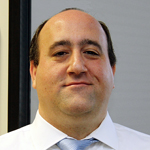Last Updated: Apr 1, 2022
 By Michael D.I. Siget, JD, MPA, PAMED's Legislative & Regulatory Counsel
By Michael D.I. Siget, JD, MPA, PAMED's Legislative & Regulatory Counsel
In November 2016, Gov. Wolf signed amendments (Act 124) to the Prescription Drug Monitoring Program (PDMP) Act into law.
One part of Act 124 provides that licensing boards shall require individuals applying for a renewal of their license, which authorizes them to be a dispenser or prescriber, to complete at least two hours of continuing education in pain management, identification of addiction or the practices of prescribing or dispensing of opioids as a portion of the total continuing education required for biennial renewal.
The 2017-2018 licensure renewal period is the first licensure period where MDs and DOs are required to meet these opioids education requirements. Therefore, unless exempt from this requirement, all licensed physicians are required to complete these two hours prior to applying for renewal this fall.
In the past several months, the Pennsylvania Medical Society (PAMED) has received several inquiries regarding the Act 124 requirements. Specifically, two issues have been raised by members:
- Who does the exemption in Act 124 apply to?
- Do the required two hours in opioid education count towards a physician’s 12 hours of patient safety education?
In a letter to both the State Medical Board and the State Osteopathic Medical Board, PAMED President Theodore Christopher, MD, FACEP, asked for clarification on these two issues. The state boards have responded and provided clarification as outlined below.
Act 124 Exemption
Under Act 124, the two-hour CME requirement does not apply to a prescriber who 1) is exempt from the Drug Enforcement Administration’s (DEA) requirements for registration under its applicable laws and regulations, as well as any state law; and 2) does not use the registration of another person or entity as permitted by law to prescribe controlled substances in any manner.
The state boards have clarified that the exemption applies unless a physician has a DEA registration number or prescribes under another individual or entity’s DEA registration number. The physician will still be required to complete 100 CME hours, but two of those CMEs would not have to be specific to opioids as required under Act 124.
Patient Safety Requirement
As part of a physician’s total CME requirement of 100 hours every two years, physicians must complete at least 12 hours in approved activities in patient safety and risk management. Dr. Christopher inquired whether the two-hour opioid requirement counts towards the 12-hour patient safety CME requirement.
The state boards responded that the two-hour opioid requirement is an independent statutory requirement (like the child abuse recognition and reporting requirement). As such, it does not count towards the 12-hour patient safety requirement. However, once the initial two-hour opioid course is taken, additional opioid courses may qualify toward the patient safety requirement.
The state boards indicated that their staff will be developing notices to place on their respective websites that further clarify these issues. In addition, please note that the 100-hour CME requirement has not changed. The two-hour opioid requirement is part of the 100-hour total requirement, not in addition to that total requirement.
Although not specified in the boards’ response, medical residents also may be required to meet the Act 124 requirement since they can use a facility’s DEA number to prescribe controlled substances. PAMED advises that medical residents check with their hospitals or other facilities where they work to determine their obligations under Act 124.
Additional Resources
For PAMED’s FAQs on licensure requirements, check out the links below:
And, get CME that can help physicians meet CME requirements on opioids, child abuse reporting, and patient safety/risk management at www.pamedsoc.org/cme.
PAMED members with questions can contact our Knowledge Center at (855)-PAMED4U (855-726-3348) or KnowledgeCenter@pamedsoc.org.